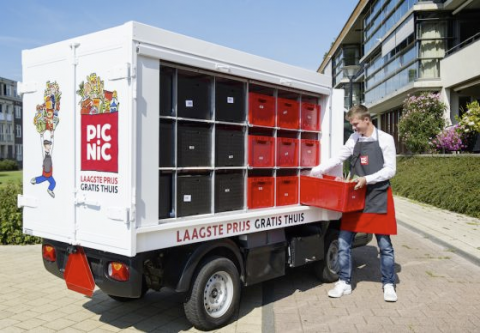Again a crazy couple of weeks for grocery delivery startups. Here is a quick recap of the main categories:
- quick-delivery startups (which operate short assortment warehouses inside city centres, or dark stores, and deliver in 15 minutes or less. It targets single persons with last-minute orders.
- new retailers (players such as Picnic or Rohlik that bet larger assortments, bigger warehouses and less short-notice delivery). It is best suited for larger orders, notably of fresh produce or larger households.
- Instacart-like startups (or restaurant delivery startups such as Deliveroo) send independent workers into partner retail stores to do the groceries for you (based on the assortment of the store itself).
Quick-commerce startups are still attracting the most attention, even if we can still have doubts about their future:
- Gorillas raised $950M, notably from Delivery Hero. Initially, Gorillas was in discussion with Delivery Hero’s competitor DoorDash. But it was insistent that Gorillas should be focusing more on profitability than expansion… At the end of the day, the valuation seems to have been set at a very dilutive $2.1B, a low point compared to Getir’s and Gorillas’ expectations. More important, it shows how strong Delivery Hero is involved and hence ready to return to a European market it had almost abandoned.
- Flink, the other German leader in this space, raised (around $600M) at a $2.1B valuation from… DoorDash. Initially, it was looking for consolidation with Gorillas.
- Getir increases the funding of its last round to $1.1B
- Jiffy, a UK-based quick-commerce startup raised $28M
In the meantime, the “new retailers” space is also moving forward with Picnic, the Dutch player raising €600M. Interestingly, the lead investor is the Bill & Melinda Gates Foundation Trust.

This involvement seems to be related to Picnic’s goal to develop a more sustainable food value chain. Indeed it tends to avoid intermediaries, use data to avoid food waste and use electric minivans for deliveries. Basically, Picnic rebuilds a retailer from scratch with the tools available in the 21st century. This deal will enable the startup to keep growing in Europe, notably in France and Germany.
Finally in the Instacart-like space:
- Glovo acquired two Iberian startups, Lola market and Mercadão. With them, Glovo hopes to increase its offer and enable consumers to make bigger baskets. It also certainly bet on them to be in a strong position to compete with quick-commerce and new retailers on its home market.
- La Poste, the national mail company acquired Epicery, an Instacart-like startup focusing on small qualitative food shops.







